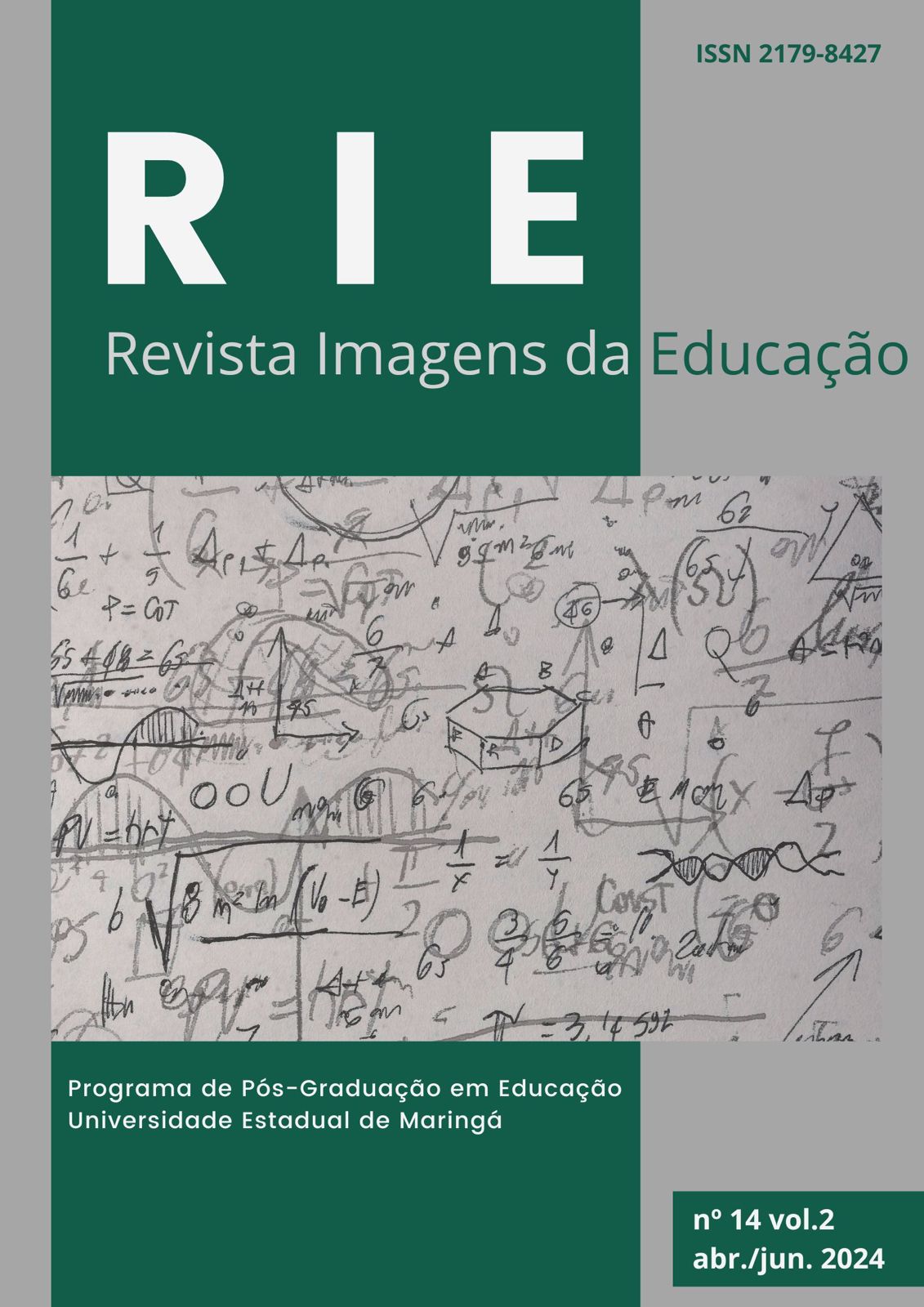CURRÍCULO INTERCULTURAL DA ESCOLA INDIGENA E A BASE NACIONAL COMUM CURRICULAR (BNCC):
UMA RELAÇÃO POSSÍVEL?
Résumé
A Base Nacional Comum Curricular (BNCC) é um documento normativo, elaborado pelo Ministério da Educação (MEC) para a organização do currículo de todas as etapas da Educação Básica, possibilitando que cada realidade se adeque em seu contexto. Nesse sentido, pretendemos verificar como a proposta de currículo em atendimento a educação escolar indígena relaciona-se com a proposta da BNCC, uma vez que essa tem o amparo das legislações vigentes ao direito a uma educação escolar específica, diferenciada e bilíngue. Trata-se de uma pesquisa de caráter bibliográfico, documental e com diálogo com uma diretora de escola com o objetivo de levantar estudos sobre currículo na educação escolar indígena, bem como compreender o termo competência adotado pela BNCC para assim identificar e relacionar com a proposta do currículo da escola indígena. Concluímos que é possível construir um currículo intercultural que contemple as orientações da BNCC bem como os saberes dos povos indígenas.
Téléchargements
Références
Brasil (1994). Diretrizes para a política nacional de educação escolar indígena, 1993. Em Aberto, 14 (63), 175-187.
Brasil. (1995). Plano diretor da reforma do aparelho do estado. Brasília, DF.
Brasil (1998). Referencial curricular nacional para as escolas indígenas. Brasília: MEC/SEF, 1998.
Brasil. (2012). Parecer CNE/CEB n. 13/2012. Diretrizes Curriculares Nacionais para a Educação Escolar Indígena na Educação Básica. Brasília, DF.
Brasil. (2012). Resolução nº 5 de 22 de junho de 2012. Define Diretrizes Curriculares Nacionais para a Educação Escolar Indígena na Educação Básica. Brasília, DF.
Brasil. (2018). Base Nacional Comum Curricular. Brasília, DF.
Domingues, J. G. (Org.) (2020). Nhemboeaty Yvy Porã: uma trajetória de luta e resistência na efetivação de uma aprendizagem intercultural. Maringá: Programa
Interdisciplinar de Estudos de Populações/Laboratório de Arqueologia, Etnologia e Etnohistória UEM/PR.
Faustino, R.C., Chaves, M., Toledo, M. J. O., Mota, L. T., Angelis Neto, G. & Nanni, M. R. (2007). Intervenções pedagógicas em educação para a saúde realizadas junto aos grupos indígenas Kaingang de Ivai e Faxinal no Paraná. Ciência, Cuidado e Saúde, . 6, p. 433-441.
Faustino, R.C. (2010). Dibersidade cultural e educação escolar indígena nos anos de 1990: contingências de uma política internacional. In E.J.G. Carvalho & R. C. Faustino (Org.). Educação e diversidade cultural. (86-108). Maringá, PR: Eduem.
Faustino, R.C. (2006). Política educacional nos anos de 1990: o multiculturalismo e a interculturalidade na educação escolar indígena. (Tese de Doutorado). Universidade Federal de Santa Catarina, Florianópolis, SC.
Ferreira, M. (1992). Escrita e oralidade no Parque Indígena do Xingu: inserção na vida social e a percepção dos índios. Revista de Antropologia, São Paulo, SP, 35, 91-112. doi: 10.11606/2179-0892.ra.1992.111331.
Ibge. (2010). Censo Demográfico 2010: características gerais dos indígenas: resultados do universo. Rio de Janeiro: IBGE.
Luciano, G. J. dos S. (2019). BNCC e a diversidade indígena: desafios e possibilidades. In I. C. P. Siqueira (Org.), BNCC: educação infantil e ensino fundamental. (pp. 38-55). São Paulo, SP: Fundação Santillana.
Menezes, M. C. B. (2016). A política de educação escolar indígena e o processo de alfabetização em uma comunidade Kaingang no Paraná. (Tese de Doutorado). Universidade Estadual de Maringá, Maringá.
Menezes, M. C. B.; Borniotto, M. L. S., & Faustino, R. C. (2018). Planejamento e ação pedagógica no ensino fundamental indígena: uma experiência com professores Kaingang na Terra Indígena Ivaí. In Anais do XIX ENDIPE (p. 25-36). Fortaleza, BA.
Menezes, M. C. B.; Faustino, R. C. & Novak, M. S. J. (2019). Alfabetização e aprendizagem da língua materna como língua estrangeira em escolas indígenas no Paraná, Revista Línguas & Letras, Cascavel, 20 (46), 27-45.
Mota, L. T. (2003). Diagnóstico étno-ambiental da terra indígena Ivaí-PR. Programa Interdisciplinar de Estudos de Populações. Maringá: PIEP-LAEE/UEM.
Paraná. (2016). Projeto multissetorial para o desenvolvimento do Paraná: estratégia de participação dos povos indígenas (EPPI). Curitiba: SEPL, SEAB, SEED, SESA.
Perrenoud, P. (1999). Construir as competências desde a escola. Porto Alegre: Artmed.
Perrenoud, P. (2000). Dez novas competências para ensinar. Porto Alegre: Artmed.
Projeto político pedagógico. (2022). Manoel Ribas, PR.
Rodrigues, A. D. (2012). Flexão relacional no tronco linguístico Macro-Jê. Revista Brasileira de Linguística Antropológica, Brasília, DF, 4 (2), 267-277. doi: 10.26512/rbla.v4i2.20691
Sechi, D. & Prates, E. L. (2015). Currículos interculturais para escolas indígenas: novos desafios. Revista pedagógica, Chapecó, 17 (34), 117-132, doi: 10.22196/rp.v17i34.2921
Copyright (c) 2024 Imagens da Educação

Ce travail est disponible sous licence Creative Commons Attribution - Pas d'Utilisation Commerciale - Pas de Modification 4.0 International.
Declaro que o presente artigo é original, não tendo sido submetido à publicação em qualquer outro periódico nacional ou internacional, quer seja em parte ou em sua totalidade. Declaro, ainda, que uma vez publicado na revista Imagens da Educação,ele não será submetido por mim ou pelos demais co-autores a outro periódico. Por meio deste instrumento, em meu nome e dos co-autores, cedo os direitos autorais do referido artigo à Revista e declaro estar ciente de que a não observância deste compromisso submeterá o infrator a sanções e penas previstas na Lei de Proteção de Direitos Autorias (Nº 9609, de 19/02/98).















1.png)

